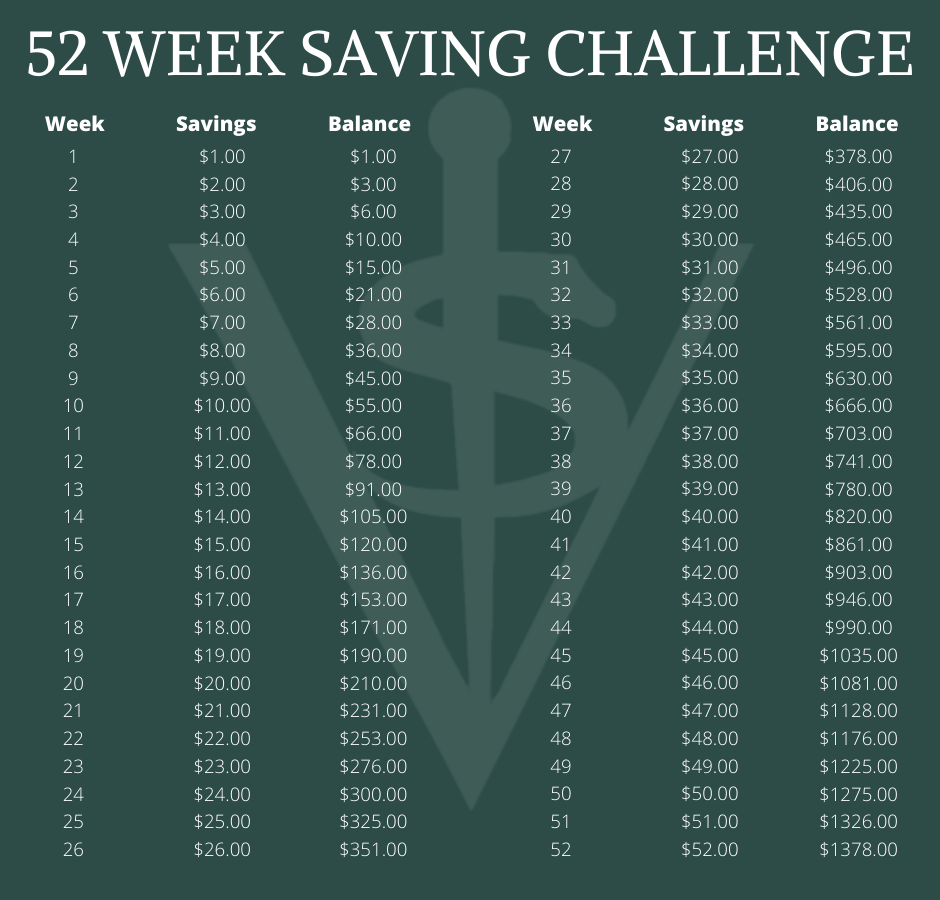How to Save $1,400 in 1 Year
We saw a chart published in various formats online. It explains a simple and smart hack to save $1,400 in one year. All you need is a dedicated savings account, a calendar and the right amount of discipline. And a few extra bucks. Do you have these four things? Let’s dig in.
The table breaks down the year into 52 weeks. In the first column, weeks are numbered sequentially: week 1, week 2, and so on until all 52 weeks are itemized. The other column shows the amount of money you will be putting aside in your bank account.
The genius is that the numbers are the same!
Week 1: save $1.
Week 2: save $2.
Week 3: save $3.
You get the idea. During your final week – week 52 – you will deposit $52 into your savings account.
So how much will you have if you are diligent enough to follow the plan?
By the end of the year, you will have saved… $1,378!

Who would have thought that by saving a few bucks each week, you could save almost $1,400?
The concept is so simple that the only way to miss the boat is a lack of self-discipline. To remember your weekly commitment, set up a recurring reminder. There are multiple ways to remember your commitment: smart phones, tablets, computers, sticky notes and emails, but all you really need is a calendar. Pick a day each week and write down the amount you need to put away.
Here are a few other simple ways to save cash:
- The “coin jar:” collect all of the coins you receive and add them to a piggy bank or a dedicated container. The cooler the container, the better.
- The “$5 bill box:” similar idea. Every time you have a $5 bill, save it in a box.
- The automatic deposit: this is a classic. Have your bank deduct a set amount of money from every paycheck, and deposit it in your savings or retirement account. Set it and forget it.
Of course, all of the above ideas can be combined for greater (and faster) savings.
The next step is to decide what you will do with the money you saved. Rather than splurging, you may want to consider:
- Donating the money to a charity
- Investing in your retirement plan
- Taking a well-deserved vacation
- Making a dent in your debt
- Funding your emergency or rainy-day fund
- Investing in your education
- Saving for a child’s education.
Clearly, the only secret to any of these systems is discipline. This also happens to be the secret to living and retiring comfortably.
As the saying goes, “mighty oaks from little acorns grow.”
Phil Zeltzman, DVM, DACVS
Meredith Jones, DVM
Co-Founders of Veterinary Financial Summit
Interested in learning more about $$$?
Subscribe to the Blog
Join the Community
Attend the Summit
Learn about the Mastermind
